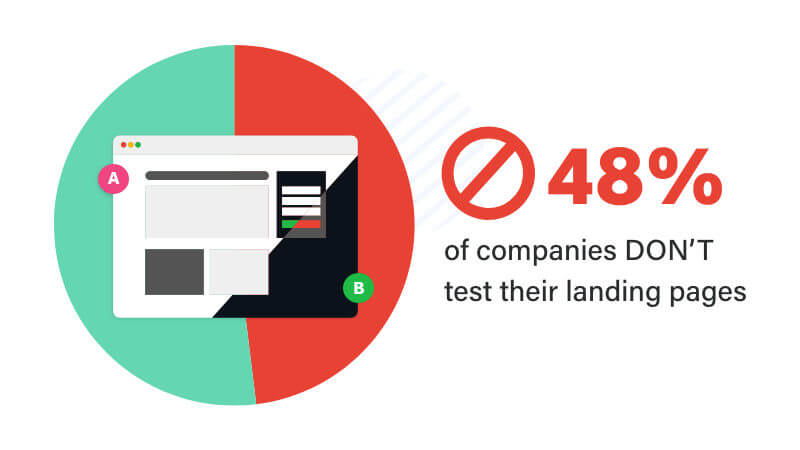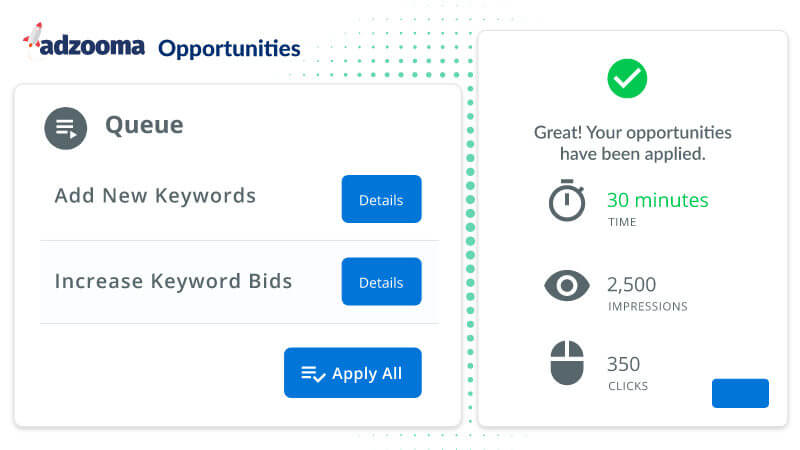Opinions expressed in this article are those of the sponsor. Search Engine Land neither confirms nor disputes any of the conclusions presented below.
Stop managing your PPC campaigns the difficult way
It’s time to embrace easier, simpler and time-saving ways to manage and optimize your ads.

We recently wrote about how PPC managers are making keyword research a lot harder than it should be. If you’re seeing a pattern here, well done.
It’s all about overcomplication.
Overcomplication is a frustratingly irritating problem because you’re not doing anything wrong per se. The job will still get done, it just takes a lot more time and effort necessary to reach the finish line.
Let’s say you’re decorating and the goal is to repaint a room a rather gorgeous shade of teal. Now, rather than use a regular roller, you decide to use fine art paintbrushes. It would be a lot more hard work and take days longer than it should. And for what? A patchier finish?
What a pointless waste of time.
That’s ultimately what you’re doing with your PPC campaigns when you manage them the hard way.
Here are three ways you might be falling into the dreaded world of overcomplication…
1. Using the wrong metrics
PPC management is nothing without data.
Oh, that sweet glorious data. No more guesswork and blindly making changes to your campaigns. Just the pure hard facts that you need to make improvements and boost your success.
Data is a bit of a double-edged sword, though. It gives you all this information for pinpoint accuracy. But the sheer amount available means that you can get lost chasing the wrong details and metrics.
Note the emphasis on wrong here. This is because although every single metric is important, they serve different purposes. If they don’t align with what you’re trying to achieve, then why are you focusing on them?
Keep it simple by sticking to the metrics that matter to you.
These metrics should be directly related to your goal.
- Got a campaign that’s designed to improve brand awareness? Look at your impressions.
- Trying to increase traffic to your website? It’s all about the clicks.
- Want sales and conversions? Say hello to your conversion rate.
This is stuff you know already. Not every campaign is going to have the same goal, which means you shouldn’t judge them by the same data.
The best way to teach this is by an example. So welcome to these example campaigns:

With no context and using these metrics, we would assume that because campaign 2 has the best CTR, it is the best performing campaign. So, we should increase the budget to campaign 2 and see how to amend the others to match these results.
Okay, let’s add some context:
- Campaign 1 is supposed to increase brand awareness
- Campaign 2 is created to drive traffic to the website
- Campaign 3 is designed to increase sales and ROI
Ah. This changes things right? With that in mind, let’s add some more data.

Oh, now these metrics show the campaigns in another light.
Compared with campaign 2, campaign 3 has fewer impressions, clicks and conversions. But, campaign 3 blows it out of the water with the lowest cost per conversion and highest ROAS, which matters to this campaign more because of its goal.
The lesson here? There’s no point stressing that your CTR has gone down if you’re actually getting higher value conversions from it. This is a success.
When we get caught up trying to hit a magic number for every single metric out there, this often gets lost.
2. Not thinking about the big picture
Not only can you overcomplicate your PPC management by losing yourself in the wrong metrics, you can also get so focused on the little things that you lose sight of the big picture.
The goal: increase conversions.
Unfortunately, your campaign just isn’t performing the way it should. Your click-through rate is high, but your conversions are low. ¡Qué desastre!
Cue panic stations and testing out every possible variation in order to improve these metrics. But… your PPC campaigns aren’t the whole process. It’s just a stepping stone on a greater journey. As much as you need to test your ads, it’s not the only touchpoint they go across.
So, think: what happens after they click?
Visitors need to go somewhere relevant that provides a good, smooth experience and is easy to use. This is what makes them convert. If you send them somewhere that doesn’t provide this, they will leave. In fact, according to a survey, 26% of shopping cart abandoners said that complication was the reason they left.
You want to keep your customer journey as short and as simple as possible. This is something we’ve stressed before when discussing why a 17 step customer journey was responsible for its ultimate failure.
And yet.
48% of businesses don’t test their landing pages. That’s nearly half! Imagine if you never tested your ad, thinking it was perfect first time around.
Honestly, that’s despicable.
The lesson to learn here? You can overcomplicate what’s wrong by honing in on those little minor details instead of looking at the bigger picture.

3. Relying on PPC scripts
PPC scripts are supposed to make management a lot quicker and easier. Take the freely available Zero Impressions Alarm for example. This script is designed to monitor your account and alert you if your account or particular campaign is down.
Rather than waiting for your next review, you can work on fixing it straight away. Great news, right?
Unfortunately, a lot of the time, PPC scripts are more hassle than they’re worth.
If you don’t understand JavaScript, they’re horrifically overcomplicated. Even if you do understand it, they can be notoriously difficult and fiddly to get right. Even the pre-made scripts can require some customization work to suit your company.
That’s not the worst part.
You just can’t rely on scripts. As soon as an update is rolled out, your PPC script is out of date. There’s no one constantly checking it to make sure that it’s still working the way it should.
That one is on you. So is the responsibility to yet again edit the code to align with the updates.
Gah. How complicated.
Here’s how to make PPC management simple
Right, full disclosure time. I work for Adzooma, so your instinct will be to distrust everything that I’m about to write as a biased plug. But that doesn’t negate the truth of what I’m writing. There’s little point of me selling you a dream that isn’t real.
If you want to make PPC management simple, you need to stop overcomplicating it.
So, stop and think. Think about your goals and what you’re trying to achieve. Instead of getting caught up in the tiny little details of your campaigns, think about the bigger picture and what changes can actually aid your progress.
Secondly, choose the tools that are built to save you time and money – without the effort and annoying maintenance of PPC scripts. A tool, like Adzooma, for example. Let me explain why.
Everything on our platform is built to save time by simplifying your PPC management. There’s two core features that make this possible.
Firstly, the Opportunity Engine. As the beating heart of Adzooma, this is intelligent AI that analyzes your account, crunches the data and presents you with actionable changes you can make to improve your campaigns.

These Opportunities can be anything from new keyword suggestions, budget changes or even fixing spelling mistakes. Most of them can be applied with a single click. This saves you from countless hours spent manually looking at your data and figuring out which changes you need to make. Much simpler.
Instead of relying on PPC scripts to free up your time, our automation and alerts feature has you covered. Let’s go back to the earlier campaign designed to drive website traffic. If clicks went below a CTR of 5%, you could pause the campaign. Alternatively, if the CPC descresed, you could set a rule to up your budget and make the most clicks for a lower cost.

Just set up the rules you want and let us take care of the rest. No coding, no updating and no checking to see if they work. We’ve got it covered for you.
Get all this, and more, with Adzooma. Interested? Try for free today.
Related stories
New on Search Engine Land
